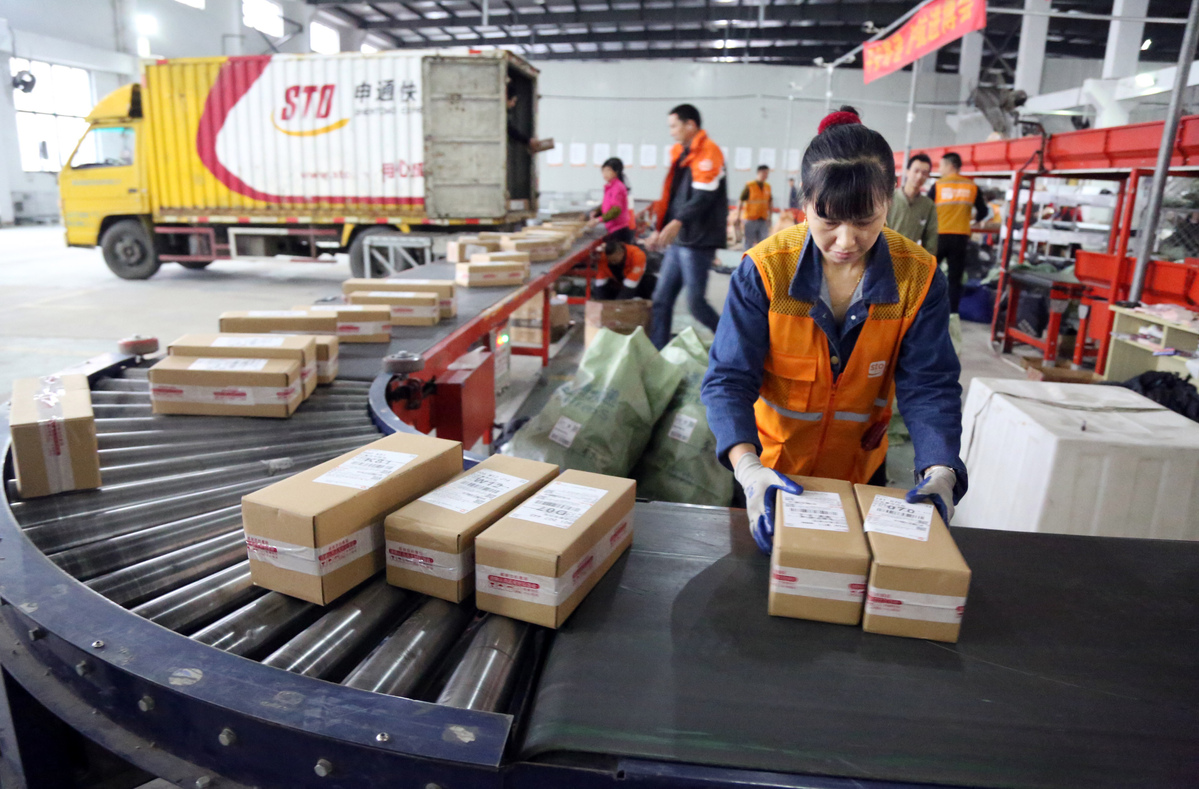Alibaba to buy stake in STO


Company to step up e-commerce footprint, enhance logistics capacities
E-commerce giant Alibaba Group Holding Ltd is acquiring a stake in a major Chinese courier company as part of its efforts to expand its e-commerce footprint and boost online-to-offline sales through enhanced logistics capabilities.
The internet giant is paying 4.66 billion yuan ($693 million) for a 49 percent stake in a new unit that will control 29.9 percent of Shenzhen-listed STO Express Co Ltd, the courier said in a regulatory filing on Monday.
Shares of STO jumped by the 10 percent daily limit to 22.48 yuan following the announcement, with the company pledging to "explore cooperation in logistics technology, parcel delivery end and new retail logistics" after the deal is closed.
According to the statement, Alibaba signed a framework agreement over the weekend with Deyin Investment, STO's biggest shareholder, which will devolve a combined 46 percent stake in the company to two new units that will be soon created.
Shanghai-based STO is among a bloc of major parcel delivery companies that have joined Alibaba's Cainiao smart logistics network. Alibaba has previously invested in STO's peers like YTO and ZTO.
The courier aggregator was formed six years ago to enhance the use of data technologies in logistics and improve delivery experiences that are perceived as vital to Alibaba's backbone e-commerce businesses.
"The capital injection can give Alibaba a bigger say in its cooperation with the industry's leading players, thus exerting a bigger influence on their resource allocation to the Tmall and Taobao platforms," said Yang Daqing, a researcher at the China Society of Logistics.
"Alibaba's approach is to empower these companies through technology, funds and commercial resources derived from its shopping avenues. The stake-purchase marks one step further toward Alibaba founder Jack Ma's goal of enabling 24-hour delivery nationwide and 72-hour delivery abroad," said Cao Lei, director of China E-Commerce Research Center.
Cainiao announced a program last year to build world-class logistics hubs in a number of locations around the world, with the first batch of five cities being Hangzhou, Kuala Lumpur, Dubai, Moscow and Liege.
But at least inside China, it faces fierce competition from JD, another e-commerce giant, which runs its own warehouses, fleet and other logistics components and already achieves same-day delivery in a number of cities.
According to the latest data from the State Post Bureau, a total of 68.8 million parcels were handled during the weeklong Spring Festival holiday in February, with JD taking the lead.
Yang said that compared with developed economies like Japan and the United States, China's courier sector currently comprises a long list of smaller players and industry consolidation has become inevitable to boost the overall logistics efficiency.




































